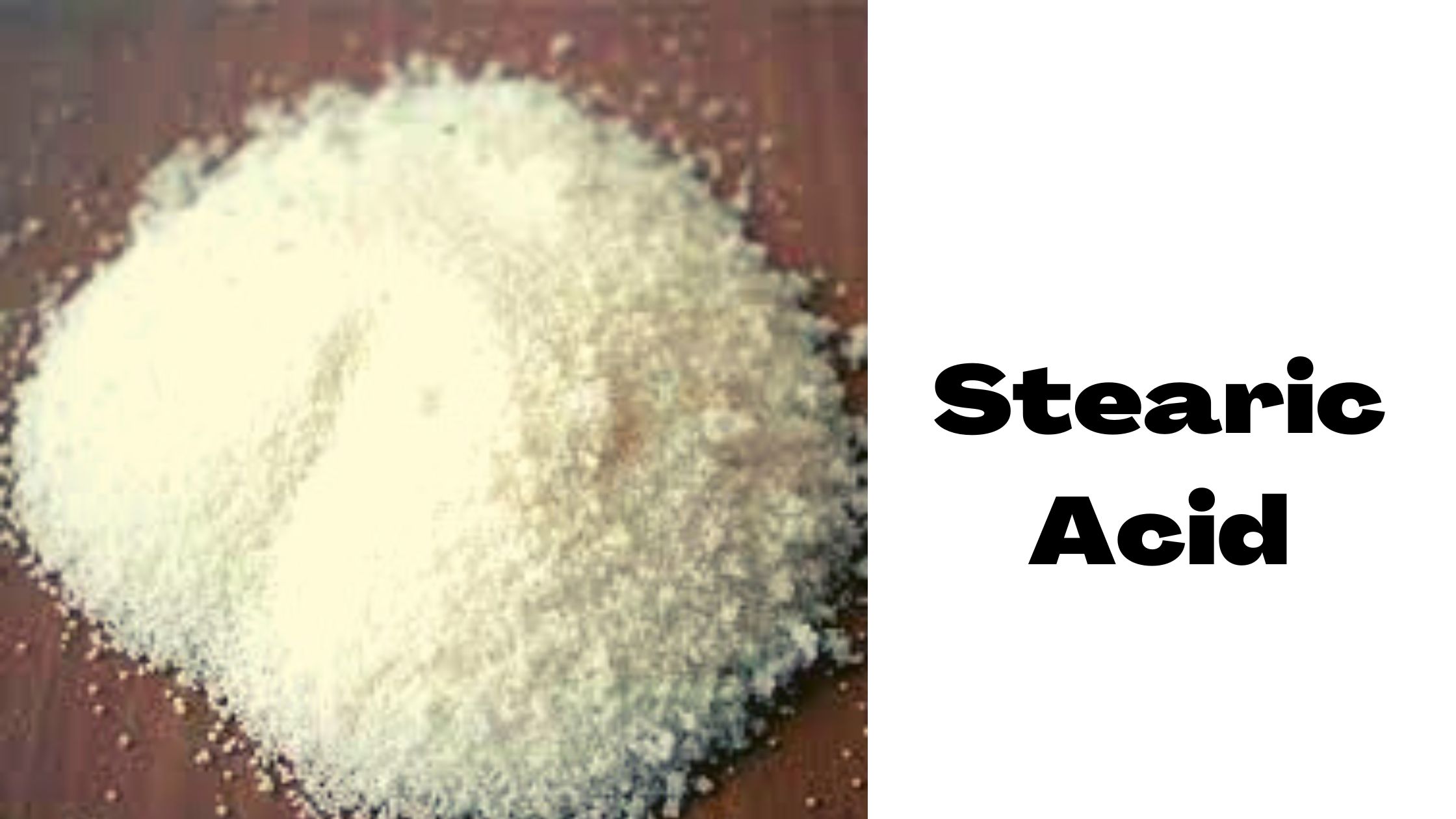Stearic acid is a common saturated fatty acid. Saturated means, when it comes to the structure of the carbon chain there are not a lot of double bonds, hence the carbon is saturated and has more room for hydrogen. Since it is saturated, it is also solid at room temperature.
This is the reason that butter (high in saturated fats) is solid at room temperature and cooking oil (normally unsaturated fatty acids) is liquid. Stearic and palmitic acids are the most consumed fatty acids in Western diets.
What is Stearic Acid?
Stearic acid is a saturated fat that can be found naturally in foods like meat, eggs, and butter. It’s also a common ingredient in many personal care products like soaps, shampoos, and makeup. But what exactly does this ingredient do for our bodies? Here’s what you need to know about stearic acid:
.
Stearic acid has a wide range of uses in the industry. It is used as an ingredient in lubricants, candles, cosmetics, and soaps. It is also used in the manufacture of plastics, rubber, and detergents. In addition, stearic acid is used as a release agent in the production of food additives and pharmaceuticals.
Stearic acid suppliers in Delhi offer a wide range of products that are used in various industries. The products offered by these suppliers are of high quality and meet international standards. These suppliers provide this acid at competitive prices and offer good discounts on bulk purchases.
How Does It Work?
This acid is an emollient that helps to moisturize the skin and hair by forming a protective barrier on the surface of the skin that prevents moisture loss and dehydration. It also adds texture to products.
Benefits of using stearic acid for the skin
- Treat
- reduce eczema symptoms
- reduce inflammation
- retain moisture in the skin
Before utilizing stearic acid-containing items to treat a specific skin disease, a person should think about consulting a doctor or dermatologist.
Potential side effects of stearic acid
While it may be safe to use stearic acid in the form of shea butter or coconut oil, the same cannot be said for pure stearic acid.
Stearic acid is a saturated fatty acid that can be found in animal products such as meat, cheese, and milk. It has various health benefits. However, it may also cause some side effects such as heartburn and diarrhea.
If you are taking stearic acid, make sure to talk with your doctor about any dietary restrictions you may need to follow. You may also want to avoid consuming alcohol while taking this acid because it can interact with other medications.
- skin irritation
- serious eye irritation
- serious eye damage
- respiratory irritation
How to use stearic acid
Acid is a white, waxy substance that is derived from animal fat. It is used in a variety of industries, including the production of cosmetics, detergents, and lubricants.
This acid can be purchased from a variety of suppliers, including those located in Delhi. When purchasing this acid, it is important to choose a reputable supplier who can provide a high-quality product.
There are many ways to use This acid. It can be used as an emulsifier in cosmetics or added to detergents to increase their cleaning power. It can also be used as a lubricant or grease for industrial applications.
No matter how it is used, This acid can be a helpful addition to any business or home.
This acid has been used in cosmetics and personal care products for many years as a thickening agent and emollient. This is also used in the manufacture of soaps, cosmetics, hair products, toothpaste, skin care products, and shaving creams.
This acid is added to foods because it helps stabilize them against spoilage by preventing rancidity and inhibiting bacteria growth. It has also been shown to have some antibacterial properties when incorporated into toothpaste formulations.
Final Thoughts
In conclusion, This acid is a saturated fatty acid that is found in various animal and vegetable fats. It has a wide range of uses, from cosmetics to lubricants, and can be either synthetic or naturally occurring. Although it is safe for most people to use, some may experience irritation or allergic reactions.



